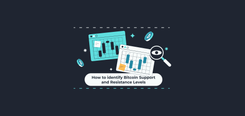The Future of AI in DeFi: Myths and Realities
AI in DeFi: Promises and Delusions
TL;DR
- AI holds great promise for improving the efficiency and security of decentralized finance (DeFi).
- AI algorithms can predict market trends, enhance risk management, strengthen smart contract security, prevent fraud, and improve user experience in DeFi platforms.
- However, there are also potential pitfalls including concerns about centralization and scalability that may arise with the integration of AI in the DeFi space.
Introduction
Artificial intelligence (AI) is currently one of the hottest topics in the world of technology. Its recent advancements have showcased its potential to greatly improve the efficiency and convenience of various aspects of our daily lives.There are already many use cases for AI in different industries such as healthcare, education, and transportation, to name a few. In the world of finance, AI has also been gaining a lot of attention, particularly in the emerging field of decentralized finance (DeFi).
What is AI Technology?
Artificial intelligence (AI) is a field of computer science that focuses on creating systems and algorithms capable of performing tasks that typically require human cognitive functions. AI systems use techniques such as machine learning, neural networks, and natural language processing to detect patterns, classify data, and make decisions, mimicking the way humans think and learn.
What is DeFi?
Decentralized finance (DeFi) is an umbrella term for financial services that are built on blockchain technology and operate without the involvement of centralized intermediaries such as banks.DeFi’s main goal is to offer a more accessible, transparent, and inclusive alternative to the traditional financial system.
How Can AI Technology Solutions Be Used in DeFi?
Integrating AI technology in decentralized finance holds great potential for improving the efficiency and effectiveness of various processes in the latter. Below are some potential use cases for AI in DeFi.
Predictive analytics
AI algorithms can process vast amounts of data quickly and accurately. This can be useful in predicting future market trends and identifying potential profitable investments. Through the use of AI tools, DeFi platforms could offer improved risk management and investment advice for their users.
Smart contract security
Smart contracts are the backbone of any decentralized application. They are self-executing pieces of code that enforce the terms of an agreement between parties on a blockchain network. However, like any other software, smart contracts can be vulnerable to bugs and hacks. AI-based tools can be used to audit smart contracts, reducing the risk of security breaches and improving the overall security of DeFi platforms.
Facilitating lending and borrowing through credit scoring
One of the major challenges in DeFi lending is assessing the creditworthiness of borrowers, as there is no central authority to verify their financial history. AI algorithms can analyze borrowers' wallet activity and other data to estimate their credit score and determine the ideal loan terms.
Fraud detection
The anonymous nature of DeFi makes it an attractive target for various types of fraudulent activity.
AI-powered systems can help prevent DeFi scams by monitoring transaction data and identifying irregular patterns and anomalies. For example, AI could watch out for unusual spikes in trading volume that can be indicative of market manipulation.
Improving user experience
DeFi is still in its early stages of development, so there is a significant learning curve for new users. However, DeFi protocols often do not provide customer support in a traditional sense due to their decentralized nature. AI-powered virtual assistants and chatbots can help users navigate DeFi platforms as well as provide personalized recommendations in their financial decisions.
Are There any Potential Negative Effects of AI in DeFi?
While AI has the potential to greatly benefit DeFi, there are also concerns about its potential negative effects. Here are a few potential pitfalls to consider.
Centralization
One of DeFi's main goals is to eliminate the need for centralized intermediaries in financial transactions. However, the integration of artificial intelligence into DeFi platforms could potentially introduce a risk of centralization, as these tools are typically developed and controlled by private companies or individuals.
Overreliance
AI systems can not yet replace human judgment, especially in complex decision-making. They operate based on patterns and data they've been trained on, and they usually can not grasp the nuances of complex or novel situations. If DeFi users begin to rely too heavily on AI-generated insights for their financial decisions, they may overlook potential risks and make ill-informed decisions.
Scalability and computational requirements
AI algorithms often require powerful computational resources to function properly. This may present challenges for scalability in some DeFi platforms.
Common Misconceptions about AI technology in DeFi
As with any popular technology, there are bound to be misconceptions and overhyped expectations surrounding AI. Here are a few common delusions about AI potential in DeFi to keep in mind.
AI can solve all of DeFi’s problems
AI can help improve certain aspects of DeFi such as security and user experience, but it is not a panacea. DeFI is a complex ecosystem with various interdependent parts and AI cannot address all the issues on its own.
AI can replace human decision-making in trading
AI won't replace human decision-making in trading because markets are inherently shaped by unpredictable factors, and traders often rely on their intuition, experience, and emotional intelligence to navigate these uncertainties. Human traders can interpret news, adapt to changing conditions, and make decisions based on a deep understanding of market sentiment and context, things that remain challenging for AI to fully replicate.
AI can eliminate risk in DeFi
AI can help mitigate risks, but it cannot completely eliminate them. In fact, relying too heavily on AI can potentially increase risks by overlooking potential red flags or unexpected events.
The Bottom Line: What Is the Future of AI in DeFi?
The future of AI in decentralized finance (DeFi) undoubtedly holds immense potential. By integrating artificial intelligence into their operations DeFi platforms can automate routine processes, enhance security measures, and take user experience to the next level.
However, it's important to approach the use of AI in DeFi with caution and keep in mind its limitations and potential negative effects. Ultimately, the success of AI in DeFi will likely depend on how well it is applied and monitored.
FAQ
What is AI technology?
AI technology is a field of computer science that focuses on creating systems and algorithms capable of performing tasks that typically require human cognitive functions, such as learning, pattern recognition, and decision-making.
How can AI improve DeFi?
AI algorithms can help predict market trends and identify profitable investments, enhance risk management, audit smart contracts for security vulnerabilities, facilitate DeFi lending through credit scoring, prevent fraud, and more.
Are there any potential negative effects of AI in DeFi?
Some potential negative effects of AI in DeFi include concerns about centralization, overreliance, and scalability issues.
Can AI predict market trends accurately?
AI algorithms can analyze vast amounts of data and make predictions based on the detected patterns. However, because financial markets are often influenced by many unpredictable factors, AI cannot predict market trends 100% accurately.




